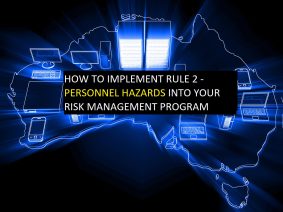We saw an article recently about some handy tips before securing a Candidate:
“Once you have advertised the position, narrowed down the field and finally identified the perfect candidate, before you make them an offer, here is a check-list of four useful tips to help you through the last important pre-employment screening phase.”
1. Check their references
2. Check their online presence
3. Check their commitment level
4. Check your gut reaction
Sound familiar? Is this typical of your experience?
If we were to speak with ten business owners or ten recruiters right now, they may offer different ways for assessing and selecting candidates, BUT many of them would boil down their answer to one word: “intuition”. In fact one the unique selling propositions of recruiting agencies is that they take “all care” for sussing out the suitability of the Candidates they’re submitting to decision makers.
Whether you are a small business owner with a half-dozen staff or a multi-billion dollar company, if the four points listed above typifies your way of doing recruitment, then be careful.
Many HR gut feeling decisions are putting organisations “at risk”. According to an Australian Institute of Criminology (AIC) publication on identifying fraud risk to business, inadequate staff employment screening is one of the leading factors to internal fraud. In their words, “Stringent checking of references and the background of applicants is a key means of minimising internal fraud risk.”
So how much of that “sussing” amounts to a scan of the CV for plausibility, a phone interview about the position, a quick referee check & a gut feel summation?
There is nothing stringent about that.
Other research by KPMG has shown that between 1 in 3 resumes have false or misleading information in them. They also found 1 in 7 Candidates had a history of dishonesty with past employers. The AIC estimates trusted insider’s fraudulent behaviour in Australia amounts to a cost of $5.88 billion a year.
A bad hiring decision is not a about hiring the wrong person, it is about taking on a ticking time-bomb.
What does that bomb look like?
- Theft of cash, stock or equipment
- Embezzlement of company or client resources
- Costs to fire, rehire and retrain someone else
- Low employee morale
- Low productivity
- Misuse of personal or confidential information
- Data breaches
- Loss of business reputation
- Loss of sales
- Decrease in company share prices
Action:
1. Commit you and/or your recruitment agency to screening Candidates for character not just competence.
2. Find a background screening company that is stringent, smart and fast and can complete ten types of background checks inside your selection diligence process.
3. Incorporate their results to help you form your hiring decision.
_____________________________________________
These articles may also be of interest to you:






